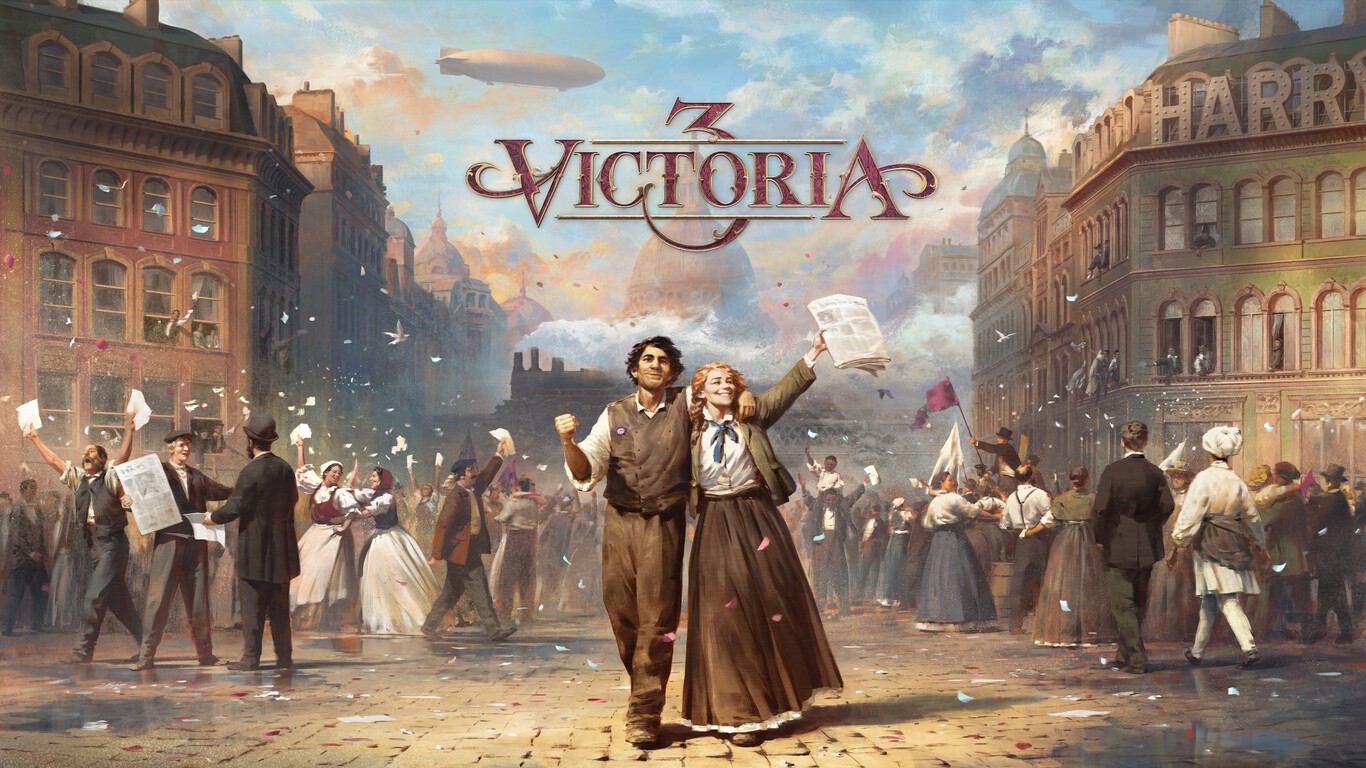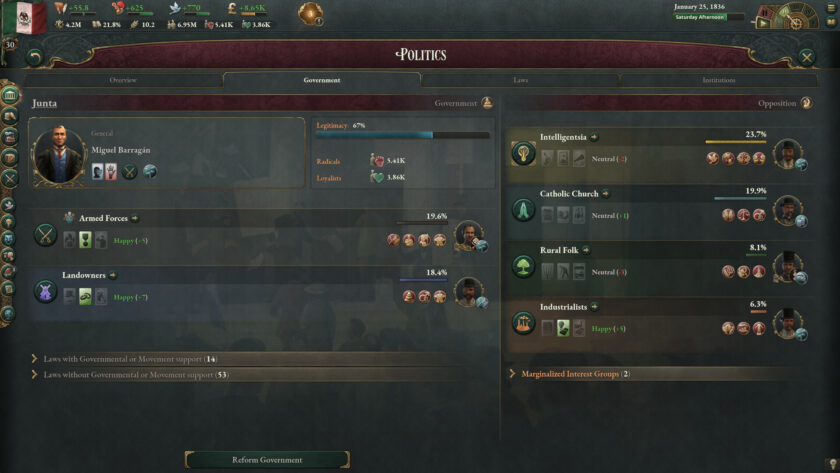
Victoria 3 is a new grand strategy game from Paradox Interactive that is set to take players on a journey through a transformative and tumultuous 100-year period, starting in 1836. The game gives players the opportunity to take control of any nation and guide it through this historical period with their political, economic, and diplomatic decisions shaping the fate of millions.
AT A GLANCE
GENRE: Simulation, Strategy
DEVELOPER: Paradox Development Studio
PUBLISHER: Paradox Interactive
RELEASE DATE: 25 Oct, 2022
FINAL SCORE: 8/10
As a fan of Victoria 2, the game takes some time to adjust to, but overall it is a great addition to the Paradox family of games. The game features a wide variety of countries to play as, including the Maori, Ethiopia, and Germany, among others.
One of the standout features of Victoria 3 is its Pops system. The Pops system creates a representation of the global population in 1836, where each pop has its own needs, and desires, and forms powerful groups for players to handle. This system forms the foundation of a realistic and dynamic society simulator, making the game a unique and compelling experience.
The world of Victoria 3 is in a state of upheaval and players have the opportunity to turn these challenges into opportunities for reform. The 19th century was a time of great change and players will experience a mix of social, technological, and cultural revolutions, providing the perfect setting for their alternate history fantasies.

The economy of Victoria 3 is deeply intertwined with the rest of the game, and players must balance the competing interests of their society to ensure their place in the sun. The game features a deep economic system where players can expand their industry, import goods, secure vital resources, and balance their labor force. The game offers players the opportunity to build an industrial giant at home or an empire abroad, and the choices they make will shape the future of their nation.
Victoria 3 offers players the chance to play on a grand stage, with the game’s diplomatic system allowing players to weave a tangled web of pacts, relations, alliances, and rivalries to secure their place in the world. Players can use their diplomatic wiles, military prowess, and threats to persuade their enemies and increase their economic and military strength at the expense of their rivals. Accumulating prestige and the respect of other nations is an important part of the game, and players will find themselves on a constant journey to build a society that is respected and feared.
The combat system in Victoria 3 has been re-imagined from its predecessor, with a new focus on frontlines and assigning generals to engage in battles. Players can build barracks in their states, choose what squad equipment to apply, and watch the battles unfold on the frontlines. The new “Back Down” option in the game allows a side that believes it is hopelessly outmatched to give in to the player’s primary war goal without conflict, saving time and allowing stronger nations to ramp up their late-game snowball.

The game also allows players to nurture interest groups and form political parties. When these interest groups form part of the government, players can sponsor new laws that shape their population or economy. There are several political paths to choose from, including liberal, egalitarian, communist, monarchist/autocratic, or a more modern approach.
One of the main criticisms of Victoria 2 was its economy, where spheres of influence were able to dupe all resources to their members, and its primitive systems required too much micro-management from the player. Victoria 3 has addressed these issues with a more realistic economy that allows players to get resources even if they’re not the number one nation worldwide. The economy is more robust, with multiple production modes for each building and a focus on efficiency and productivity. The warfare system has also been improved, with players now deciding which frontlines each general with a certain number of troops should fight at, reducing the amount of micromanagement required and freeing up time for players to focus on other aspects of the game.

The political system in Victoria 3 is another highlight, with every route having its own pros and cons. Players can choose to set up an authoritarian ethnostate, where they will have to deal with unrest and lower migration, but will have more authority to use some strong bonuses to their states. Alternatively, they can choose to create a more liberal society where people will be happier and receive higher wages, increasing migration and living standards. This system allows players to create their ideal society and make decisions that are true to their own beliefs and values.
There are some areas for improvement, including AI issues with managing their own economies and a lack of customization options for Pops/Leaders. However, these are minor issues that the developers are likely to address in future updates or DLC.
Final Thoughts
Summary
Victoria 3 is a great addition to the Paradox family of games, and offers a solid base with a new flavor for this franchise. The game has its quirks, but overall it is a solid and replayable experience with a wide variety of countries to choose from, and a deep and intricate economic and population system. The game's focus on diplomacy, its re-imagined combat system, and its potential for expansion through regular updates and DLC make it a must-play for grand strategy fans.




